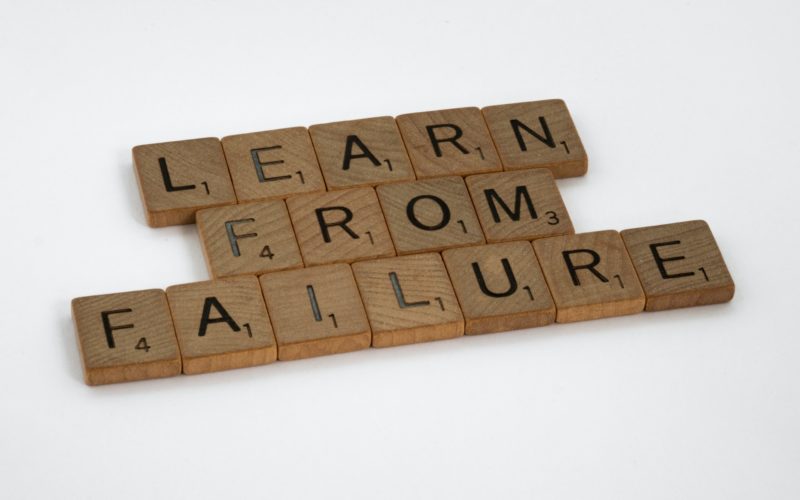Value Based Selling is a consultative approach to selling that requires the salesperson to be a decision coach for their prospects. Using this approach, a seller provides value throughout the sales process, before a deal is ever signed. One of the most common misconceptions about Value Based Selling is that salespeople assume it is enough to communicate the value of the product or the solution. A true Value Based Selling approach will create value during each selling interaction, not just communicate the value that the prospect can expect after the solution has been implemented.
How to create value during a sales call?
In order to create value during a sales call, the sales rep has to be insightful with their questions and share the right information at the right time. Ultimately, it means being a decision coach for the buyer. Most salespeople that need to use a Value Based Selling approach are selling complex solutions to other businesses or government agencies. These types of purchases are complex and stressful for the buyers since they require a significant investment of time and money.
For this reason, buyers in this position need a decision coach, not just someone that can tell them about the features and aspects of a product. The sales interactions need to create insights for the prospects and help them come to a decision that is best for them.
There are many ways for salespeople to be consultative and provide insights during sales interactions, but in this blog, we are going to focus on the most effective tool sales reps have at their disposal: questions.
The Role of Questions in Value Based Selling
Prospects, or people in general, don’t want to be told why a solution is great or why a product is a perfect fit for them. Unfortunately, this is exactly what happens during most sales calls. Many sales reps will get on an initial sales call and immediately jump to a demo or start talking about all the features or who they have worked with in the past. This is not helpful to the customers.
Questions, however, do the exact opposite. A question about the prospect’s circumstance makes them think deeply about their own situation. Questions help salespeople learn about the prospect’s challenges directly from the prospects themselves instead of assuming or telling the potential buyers what their challenges might be.
When a salesperson asks thoughtful and personalized questions, the buyer feels heard. This goes a long way in building rapport with potential buyers. Below are a few examples of questions that sales reps should ask before and during each interaction.
Questions To Ask Before Meeting With the Prospect
Planning for every sales call is vital when utilizing a value-based approach. To provide value during sales interactions, sales reps can’t just “wing it.” Here are some questions that sales reps should be asking to prepare for each sales call:
- What do I already know about the prospect? Is there anything I am unsure about and should confirm with the prospect?
- Sales reps should always reflect on what they already know about their potential buyer. There might be some details about the company or the deal that a rep is unsure of so it is always better to ask than to assume. If it’s the first call, sales reps must do research on the prospect and the company before getting on the call. This will help sales reps ask more personalized questions. Personalized and prepared questions instill confidence in the buyer and further their trust in the sales rep’s ability to provide value.
- Sales reps should always reflect on what they already know about their potential buyer. There might be some details about the company or the deal that a rep is unsure of so it is always better to ask than to assume. If it’s the first call, sales reps must do research on the prospect and the company before getting on the call. This will help sales reps ask more personalized questions. Personalized and prepared questions instill confidence in the buyer and further their trust in the sales rep’s ability to provide value.
- What is the value that the prospect is receiving from this sales call?
- A sales rep should be able to directly answer why a call is valuable for the prospect. Perhaps a key piece of information is being shared. A salesperson can provide value by also consulting the prospect about their current solution. Figuring out the value the prospect is gaining from the call will help establish a purpose for the sales call. Stating this value or purpose at the beginning of the call helps the buyers get in the right mindset for the conversation and signals to them that the sales rep came prepared to provide value to them during the sales interaction.
- A sales rep should be able to directly answer why a call is valuable for the prospect. Perhaps a key piece of information is being shared. A salesperson can provide value by also consulting the prospect about their current solution. Figuring out the value the prospect is gaining from the call will help establish a purpose for the sales call. Stating this value or purpose at the beginning of the call helps the buyers get in the right mindset for the conversation and signals to them that the sales rep came prepared to provide value to them during the sales interaction.
- What outcome is the sales rep seeking from this call? What is the value of the next conversation?
- Knowing where a sales rep wants to go with the call helps them have a great plan for the conversation. Maybe the goal is to bring in more senior decision-makers to the next call or to arrange an on-site visit. Sales reps should clearly know what they are looking to get out of the conversation. As important as this, sellers must be prepared with why that next step will be valuable for the prospect. Asking for a follow-up meeting might work, but asking for a follow-up meeting and being able to state why it will be valuable for the prospect dramatically increases the chances of moving the deal forward.
Questions To Ask During Sales Interactions
The questions that a sales rep asks during a sales call depend on the buying stage the customer is in. For example, it wouldn’t be appropriate to ask what competitors the prospect is considering if the potential buyer is still in the exploration phase of their buying journey. With that in mind, here are some powerful questions a seller can ask during sales calls to provide value for the prospect.
- Where are you in the buying stage?
- The only way to find out where a prospect is in their decision journey is to ask them. Some prospects will know exactly where they are, while others will need some guidance. This is the opportunity for the sales rep to be a decision coach and truly embody the Value Based Selling approach. While buyers should be thinking about complex decisions in stages, they often will not. The sales rep can help the buyer map out a process and make recommendations based on the prospect’s stage.
- The only way to find out where a prospect is in their decision journey is to ask them. Some prospects will know exactly where they are, while others will need some guidance. This is the opportunity for the sales rep to be a decision coach and truly embody the Value Based Selling approach. While buyers should be thinking about complex decisions in stages, they often will not. The sales rep can help the buyer map out a process and make recommendations based on the prospect’s stage.
- What do you see as a successful outcome?
- A sales rep can not provide value to a potential buyer if they do not know what the buyer considers valuable. With every purchase decision in a complex sales cycle, there are goals and outcomes that the buyers are looking for. Salespeople need to have absolute clarity about what the prospect considers to be a successful outcome as a result of implementing a product or solution. This will help the sales rep deliver the value the prospect is looking for and map the solution to what the customer wants.
- A sales rep can not provide value to a potential buyer if they do not know what the buyer considers valuable. With every purchase decision in a complex sales cycle, there are goals and outcomes that the buyers are looking for. Salespeople need to have absolute clarity about what the prospect considers to be a successful outcome as a result of implementing a product or solution. This will help the sales rep deliver the value the prospect is looking for and map the solution to what the customer wants.
- Would it be helpful if I shared X about our solution?
- Instead of just talking about what a sales rep thinks will be beneficial to the customer, sales reps should ask if something would be helpful before launching into a monologue. It’s a simple change but framing it as a question makes a huge difference in the prospect’s mind. It makes them feel heard, and if the prospect says yes to wanting more information, they will also pay more attention to what the sales rep is saying.
There are many more types of questions that a sales rep can ask during a sales call, which will depend on the industry or the solution. The timing behind the questions is extremely important, but just as important is the premise for the questions. For example, instead of asking, “Where are you in your buying process?” it is much more effective to pose the question with a premise like this: “I want to make sure I am providing you with the most relevant information. Where would you say you currently are in your buying process?”
It’s easy enough to form questions, but they are most effective when combined with the right premise and timing.
Creating Value In The Process
Questions are the most effective tool to create value during the sales cycle. Here are some additional tips to keep in mind to find success with a Value Based Selling approach.
- Approach each sales interaction as a way to consult the prospect.
- Use a customer-centred approach in the decision-making process.
- Figure out each decision maker’s goals and priorities and use the available resources to determine what each is looking for.
If your business and sales strategy provides value throughout the sales process, using Value Based Selling, your prospects will be much more likely to reach the end of that sales process, and your successful outcomes will increase.
⸻

About Tom Snyder
After receiving both a BS and MBA from the University of Maryland, Tom began his career by joining the United States Federal Government, where he held various analyst positions, most prominently as a member of the White House staff under two different Presidents. After leaving the federal government, Tom spent many years as a serial entrepreneur, founding companies dedicated to advancing the practice of sales. He is the Founder & Managing Partner of Funnel Clarity, a sales consulting company that consults primarily with organizations in the areas of sales strategy, sales skills, and sales process.












